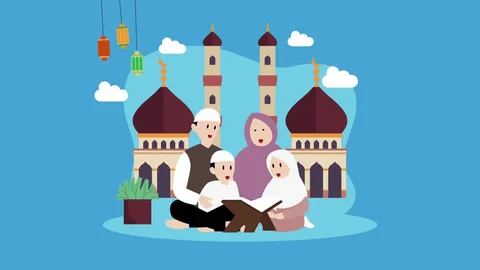Eid holidays in UAE are a time of joy, reflection, and community. These holidays are marked by two major Islamic festivals: Eid al-Fitr and Eid al-Adha. Each has its unique significance, customs, and traditions, reflecting the rich cultural heritage of the UAE. In this blog, we’ll explore the essence of these celebrations, how they are observed in the UAE, and their impact on the local community.
Understanding Eid al-Fitr and Eid al-Adha
Eid al-Fitr
Eid al-Fitr, also known as the “Festival of Breaking the Fast,” is celebrated at the end of Ramadan, the Islamic holy month of fasting. It is a time for Muslims to express gratitude to Allah for providing the strength to complete the month-long fast.
- Date and Duration: Eid al-Fitr is celebrated on the first day of Shawwal, the tenth month of the Islamic lunar calendar. The holiday typically lasts for one to three days, depending on the country.
- Significance: The festival marks the end of Ramadan, a period of fasting, prayer, and reflection. It is a time to give thanks for the self-discipline practiced during the month and to celebrate the spiritual growth achieved.
Eid al-Adha
Eid al-Adha, or the “Festival of Sacrifice,” commemorates the willingness of Prophet Ibrahim (Abraham) to sacrifice his son as an act of obedience to Allah. It is the holier of the two Eids and is often referred to as the “Greater Eid.”
- Date and Duration: Eid al-Adha is observed on the 10th day of Dhu al-Hijjah, the twelfth month of the Islamic calendar. The celebrations typically last for four days.
- Significance: This festival coincides with the annual Hajj pilgrimage to Mecca, one of the five pillars of Islam. It symbolizes sacrifice, faith, and community spirit.
Customs and Traditions in the UAE
The UAE, with its diverse population and deep-rooted Islamic traditions, celebrates Eid with a blend of religious observance and cultural festivities.
Eid Holidays in UAE Preparations
In the days leading up to Eid, families engage in thorough cleaning and decorating of their homes. Shopping for new clothes, gifts, and special foods is a common practice. Markets and malls are bustling with activity as people prepare for the joyous occasion.
Prayers and Charity
Eid mornings begin with a special prayer called “Salat al-Eid,” performed in congregation at mosques and open grounds. Following the prayer, Muslims are encouraged to give “Zakat al-Fitr,” a form of charity, to help those in need participate in the celebrations.
Feasting and Socializing
Eid is synonymous with feasting. Traditional dishes such as “Machboos,” “Harees,” and various sweets like “Luqaimat” and “Baklava” are prepared and shared with family and friends. Social visits and gatherings are an integral part of the celebrations, fostering a sense of community and togetherness.
Cultural Events and Activities
The UAE hosts a variety of cultural events and activities during Eid. From fireworks displays and traditional dance performances to family-friendly events at parks and malls, there is something for everyone. These events highlight the UAE’s commitment to preserving its cultural heritage while embracing modernity. For a broader perspective on the vibrant festivals in UAE, check out this comprehensive guide.
The Impact of Eid on the UAE Community
Eid holidays have a profound impact on the UAE community, strengthening social bonds and promoting cultural awareness.
Strengthening Family Ties
Eid provides an opportunity for families to come together, often traveling from different parts of the country or even from abroad. It is a time to reconnect, share stories, and create lasting memories.
Promoting Charity and Compassion
The emphasis on charity during Eid fosters a sense of compassion and social responsibility. The tradition of giving ensures that everyone, regardless of their financial situation, can partake in the festivities.
Boosting the Economy
The surge in shopping and tourism during Eid has a significant positive impact on the UAE’s economy. Retailers, restaurants, and hospitality sectors see increased business, contributing to economic growth and stability.
Final
Eid holidays in UAE are a beautiful blend of religious devotion, cultural traditions, and modern celebrations. They highlight the country’s rich heritage and its commitment to fostering a sense of community and togetherness. Whether you’re a resident or a visitor, experiencing Eid in the UAE offers a unique insight into the nation’s heart and soul. As the UAE continues to grow and evolve, its Eid celebrations remain a testament to its enduring cultural values and spirit of unity.
FAQs About Eid Holidays in UAE!
How many holidays are there in Eid Al Adha in UAE?
It occurs on Dhul Hijjah 10–12, which, based on astrological calculations, most likely corresponds to a public holiday from Monday, June 17 to Wednesday, June 19. For those who have a Saturday and Sunday off, work will resume on Thursday, June 20, after a five-day holiday.
How many holiday days are there in UAE?
14
The UAE Cabinet has officially announced that there will be 14 public holidays in 2024 for both the public and private sectors of the country.
How many days is Eid Al Adha?
The Feast of Sacrifice, or Eid al-Adha, is a major holiday observed by Muslims around the world over three to four days. The majority of Muslims will participate in the special prayers that are offered at significant mosques and Islamic centers across the globe, including in the US.

